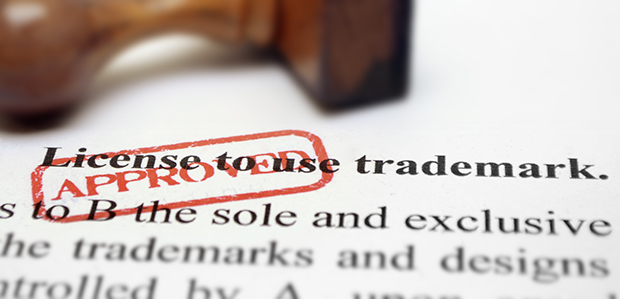In Azumi Limited v Zuma's Choice Pet Products Limited, the High Court considered a claim by Azumi, the owner of high-end Japanese restaurant Zuma against Zuma's Choice Pet Products Limited (ZCPP) and its director Zoe Vanderbilt for trade mark infringement. This was brought under section 10(3) of the Trade Marks Act 1994 and Regulation 9(2)(c) of Council Regulation (EC) no 207/2009 (as amended by the EU Trade Mark Regulation 2015/2424). There was also a groundless threats counterclaim brought by the defendants against Azumi as well as two separate threats claims.

In summary, the judge held that the signs complained of were detrimental to the distinctive character and the repute of the relevant trade marks, and that the own name defence could not succeed as the name "Zuma" was the name of Ms Vanderbilt's dog, which was not a natural or legal person, and was not a party to the proceedings in any event.
Background
Azumi is the registered proprietor of a UK and an EU trade mark for the word mark ZUMA in class 42 and class 43 respectively. It is also the registered proprietor of a figurative EU trade mark. It applies the mark to a high end restaurant in Knightsbridge, and associated restaurants in selected cities around the world. The judge found the restaurant to be "amongst London's best restaurants of any type", and that it has been "recognised by a number of awards and accolades over the years".
Mrs Vanderbilt incorporated her company ZCPP in 2014, purportedly naming it after her dog, "Zuma". The company set out to sell high quality pet food, with names such as "cottage pie with cheesy mash" and "beef stew with liver and dumplings". Ms Vanderbilt registered the domain name 'dineinwithzuma.com', which directs users to a website which markets pet food products and includes use of the word ZUMA and the phrase DINE IN WITH ZUMA along with a device containing the same wording next to an image of a dog.
Reputation of the trade marks
The judge noted that the relevant market was not the entirety of the restaurant market in the UK, but rather a smaller market for high quality high-end restaurants in London. Notwithstanding that, the judge accepted Azumi's submission that a larger number of people than those who have eaten at Zuma are likely to be aware of the restaurant's reputation through word of mouth and because of the awards, press coverage and celebrity attendance it has received, such that she found the marks to have a "substantial reputation" in the UK, which by extension is sufficient for there to be a reputation in the EU.
Use of a sign on goods or services by the defendants
It was not disputed that DINE IN WITH ZUMA and the device were used as signs. The judge considered that it did not matter that the website had not yet accepted any orders, as the site appeared ready to take orders and was available to view. Additionally, the judge noted that it is well - established law that domain names can themselves amount to trade mark infringement. However, the judge did find that the company name Zuma's Choice Pet Products Limited had not been used as a sign in connection with the business and was solely used on the register of company names. Therefore, this specific use did not amount to infringement.
Sign identical with or similar to the trade marks
The judge found that ZUMA on its own was identical to the trade marks, and that use of DINE IN WITH ZUMA was similar, as the average consumer looking at the signs complained of as a whole would perceive the distinctive and dominant element to be ZUMA.
Link in the mind of the average consumer
The judge first looked at whether there was opportunity for the average consumer to make a link between the signs and the trade marks. She held that as those who are aware of the trade marks are a wider section of the public than those who have eaten at the Zuma restaurant, and a significant proportion of that section of the public is likely to be in the market for dog food, there was indeed such an opportunity.
The judge also observed that if the defendants were successful in growing their business, their products may be stocked in major supermarkets (as Ms Vanderbilt had said she wished to happen), and even if the products were sold in specialist stores, the average consumer who is attracted by the high quality fresh food for themselves at Zuma restaurant, may also seek out high quality fresh food for their dogs and encounter the defendants' products.
Finally on the issue of link, the judge was satisfied that the average consumer who is aware of the trade marks would, on exposure to the signs complained of, call the trade marks to mind and make a link. The judge also accepted Azumi's submission that the words "Dine In" as used by the defendants enhance the likelihood of a link, because one does not normally refer to dogs "dining" as that is more of a human activity.
Tarnishment and dilution of the trade marks
Azumi's witness, the co-founder of the restaurant Rainer Becker, explained to the court that there is an inherent tension between dog food and human food of any type and an even greater tension between dog food and food served in high quality restaurants such as Zuma. As such, the court was satisfied that the association that consumers would make between the trade marks and the use of the signs complained of in relation to dog food, would tarnish the image or reputation of the trade marks, and reduce their power of attraction.
This association was, in the judge's mind, likely to reduce the connotations of prestige associated with the trade marks. This could be likely to have an adverse effect on the economic behaviour of the average consumer with knowledge of the trade marks.
Own name defence
The defendants pleaded the own name defence with reference to Ms Vanderbilt's dog Zuma. The judge confirmed that as a matter of law this could not succeed. The own name defence could not succeed in respect of the EU trade marks, as Article 12(1)(a) of the Regulation was amended in March 2016 to state that the own name defence can only apply to natural persons, rather than companies. The judge was also not satisfied that the defence was made out in respect of the UK trade mark, because ZUMA is not ZCPP's legal name but rather the name of a dog, and the dog was neither a natural or legal person, nor a party to the proceedings.
Threats
The judge held that the threats complained of by the defendants were all justified except for the requirement for her to change the company name of ZCPP, as she had not used the company name as a sign in the course of trade. However, the judge could not find any evidence of the defendants having suffered any loss or damage, and therefore held that she was not entitled to damages.
Costs
The main infringement case was heard together with the two threats claims, but they were not consolidated (at the request of the defendants). As such, the Intellectual Property Enterprise Court (IPEC) costs cap applied to each case individually and, given the number of unsuccessful applications the defendants had made (some of which related to the threats claims), the court awarded just over £66,000 in costs in total.
Gowling WLG acted for Azumi Limited in this case.
Azumi Limited v Zuma's Choice Pet Products Limited [2017] EWHC 609 (IPEC) (24 March 2017)
The content of this article is intended to provide a general guide to the subject matter. Specialist advice should be sought about your specific circumstances.
